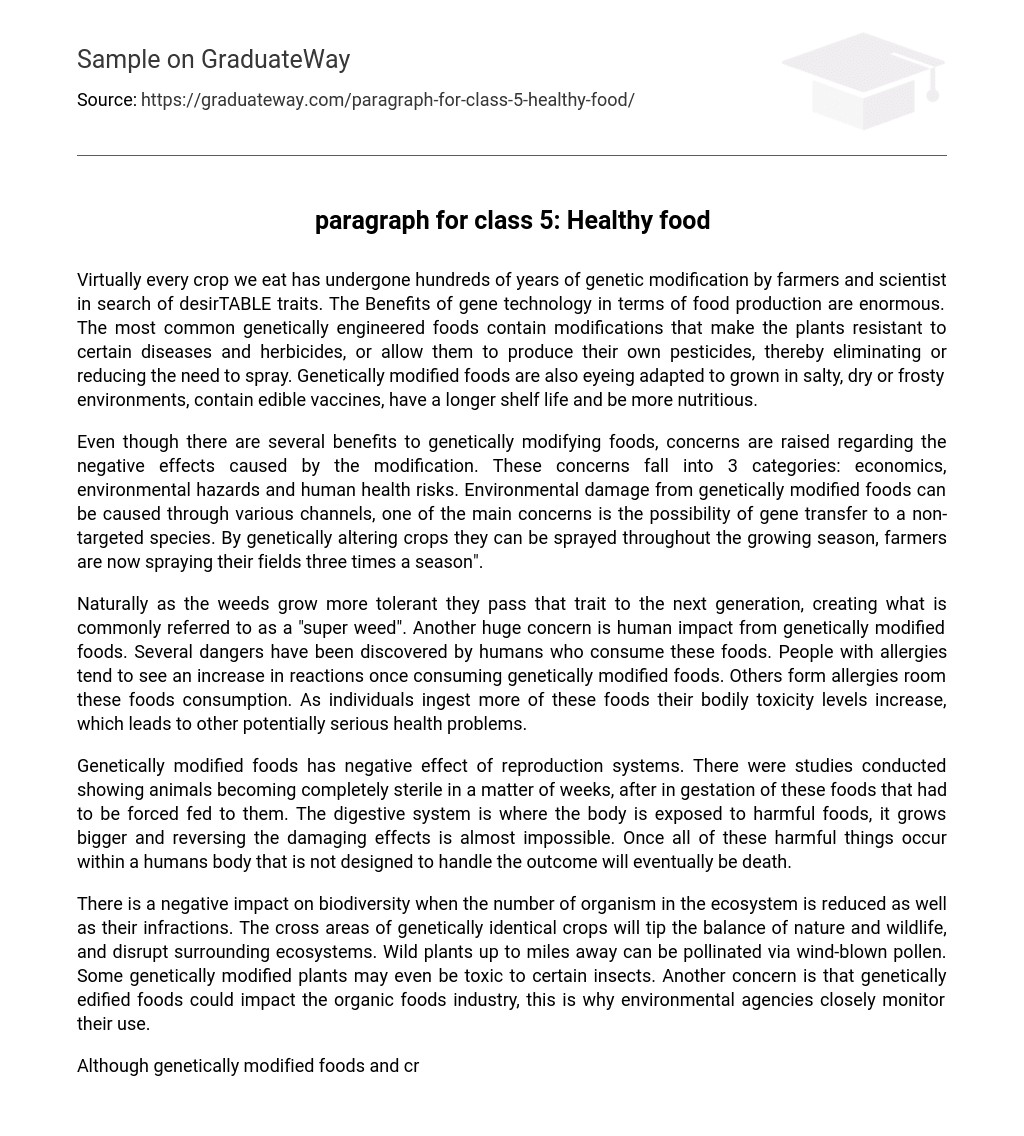Virtually every crop we eat has undergone hundreds of years of genetic modification by farmers and scientist in search of desirTABLE traits. The Benefits of gene technology in terms of food production are enormous. The most common genetically engineered foods contain modifications that make the plants resistant to certain diseases and herbicides, or allow them to produce their own pesticides, thereby eliminating or reducing the need to spray. Genetically modified foods are also eyeing adapted to grown in salty, dry or frosty environments, contain edible vaccines, have a longer shelf life and be more nutritious.
Even though there are several benefits to genetically modifying foods, concerns are raised regarding the negative effects caused by the modification. These concerns fall into 3 categories: economics, environmental hazards and human health risks. Environmental damage from genetically modified foods can be caused through various channels, one of the main concerns is the possibility of gene transfer to a non-targeted species. By genetically altering crops they can be sprayed throughout the growing season, farmers are now spraying their fields three times a season”.
Naturally as the weeds grow more tolerant they pass that trait to the next generation, creating what is commonly referred to as a “super weed”. Another huge concern is human impact from genetically modified foods. Several dangers have been discovered by humans who consume these foods. People with allergies tend to see an increase in reactions once consuming genetically modified foods. Others form allergies room these foods consumption. As individuals ingest more of these foods their bodily toxicity levels increase, which leads to other potentially serious health problems.
Genetically modified foods has negative effect of reproduction systems. There were studies conducted showing animals becoming completely sterile in a matter of weeks, after in gestation of these foods that had to be forced fed to them. The digestive system is where the body is exposed to harmful foods, it grows bigger and reversing the damaging effects is almost impossible. Once all of these harmful things occur within a humans body that is not designed to handle the outcome will eventually be death.
There is a negative impact on biodiversity when the number of organism in the ecosystem is reduced as well as their infractions. The cross areas of genetically identical crops will tip the balance of nature and wildlife, and disrupt surrounding ecosystems. Wild plants up to miles away can be pollinated via wind-blown pollen. Some genetically modified plants may even be toxic to certain insects. Another concern is that genetically edified foods could impact the organic foods industry, this is why environmental agencies closely monitor their use.
Although genetically modified foods and crops have huge benefits that may lead to solving world hunger due to the lesser production costs and increased crop yield, the dangers far outweigh them; risks and hazards that are related to it may affect human health, the environment, and society. The advantages of biotechnology prominent now are only short term, consumers should be aware of what they are eating and the health risks they are taking when misusing genetically modified foods.





